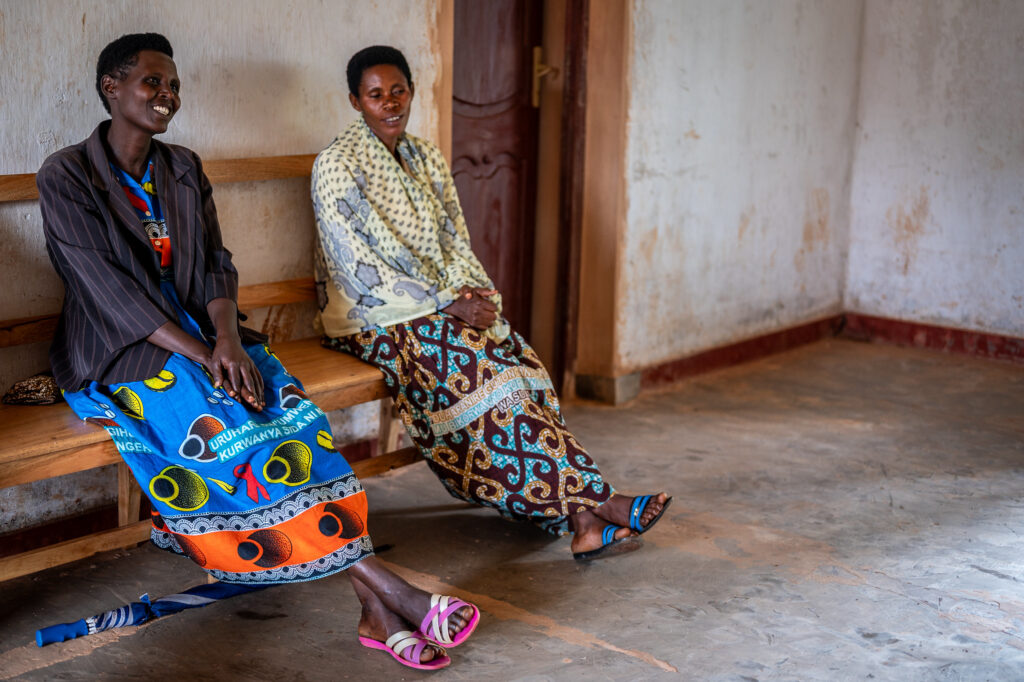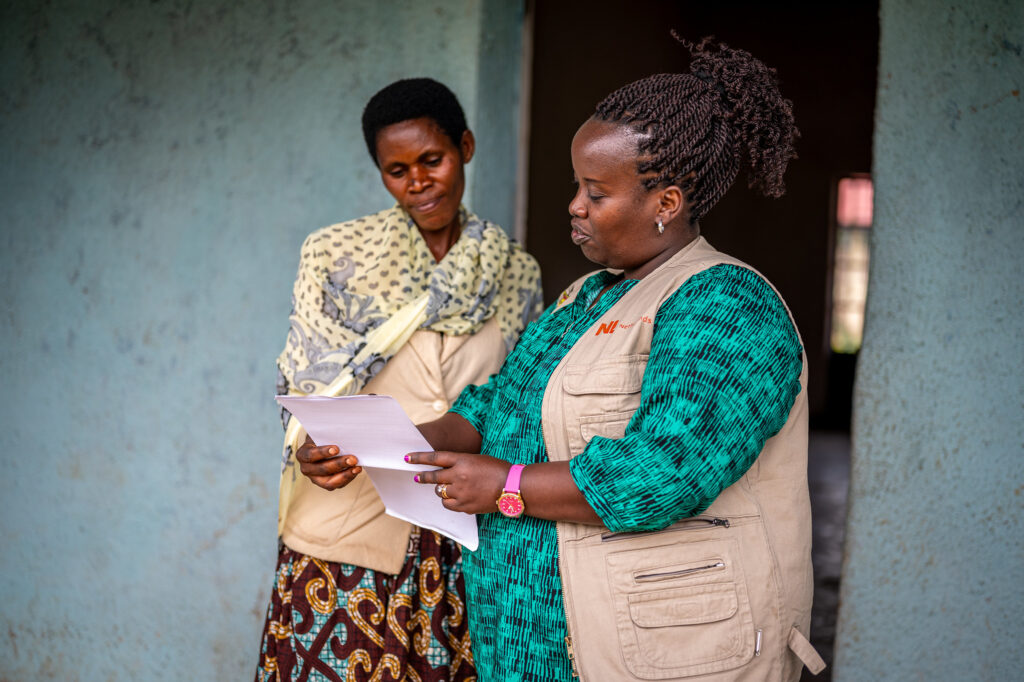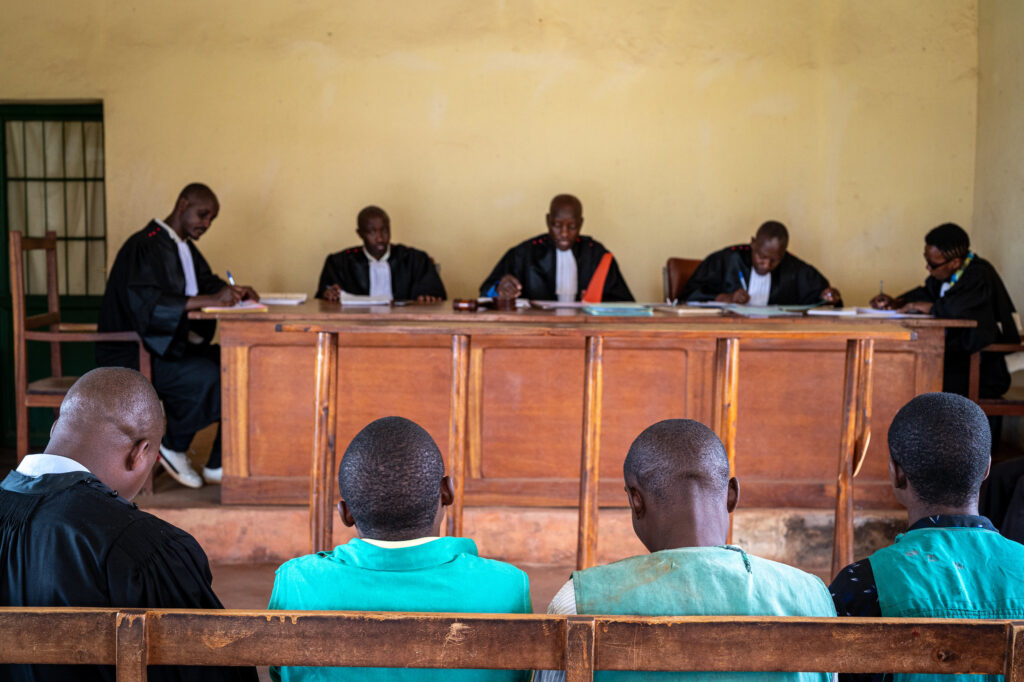Many Burundians have little to no access to legal support and often lack crucial information about their rights. Cordaid supports legal clinics in Ruyigi province, assists communities by improving access to justice services and organises legal caravans to reach people in isolated areas and remote villages.

‘Thanks to the clinic, my family is still standing’, says Claudette Ngendakazi. 45-year-old Claudette’s husband suffers from alcoholism and plunged his family into a debt crisis. Pressured by his creditors, he gave away part of the family property without Claudette’s consent.
Article 126
The Ruyigi team organised a so-called ‘legal caravan’ in Claudette’s village. The theme of the day was ‘household management and the role of women, taking reference to Article 126’, which states that ‘no spouse may acquire for valuable consideration ownership or any other real right over real estate or holdings belonging to the conjugal community without the consent of the other‘.

Claudette: ‘There I learned I had a role in managing our property. Before, I believed that only the husband had the right to decide over the household.’
According to project leader Digne Ntakiyiruta, reaching out to the Burundian population and informing them about their rights was long overdue. ‘There was no information system in place’, she says. ‘Many people cannot read or write, and those who can still run into problems because the formal documents are written in French. People who approach us have various issues, but most are about legal procedures. The clinic’s lawyers support and accompany them in drafting legal documents.’
Watch this video about Cordaid’s Access to Justice programme in Burundi:
A pool of lawyers
Ntakiyiruta explains that the programme also supports the population through collaborations with bar associations. ‘They are partners in the project implementation and have identified a pool of lawyers who will assist people who otherwise couldn’t afford a lawyer.’

Ntakiyiruta believes the programme provides crucial assistance now but will yield long-term results. ‘The legal clinics work with the local administration to sustain the project’s achievements. The clinics are installed on municipal premises. At the end of the project period, we are sure the municipalities and local actors will continue the activities.’
Case closed
At the legal clinic in Ruyigi, Claudette received advice on a procedure that enabled her to recover her property. The team has referred her to a council that solves conflicts within the community. They also advised her on how to present her complaints. With success, the council ruled in Claudette’s favour.

However, her victory was only complete after her husband attended an awareness-raising session at the legal clinic. ‘At the session, he also learned about article 126. That’s when our life as a couple got back on track. Without the clinic, I don’t see how we could have gotten ourselves out of this situation.’
The European Union funds this project through the Embassy of the Netherlands in Burundi.
